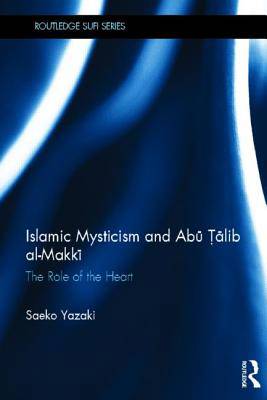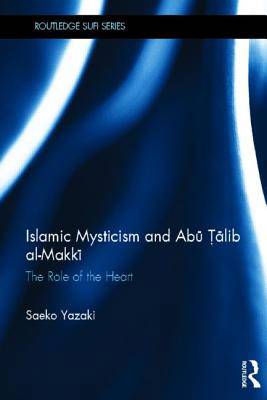
- Afhalen na 1 uur in een winkel met voorraad
- Gratis thuislevering in België vanaf € 30
- Ruim aanbod met 7 miljoen producten
- Afhalen na 1 uur in een winkel met voorraad
- Gratis thuislevering in België vanaf € 30
- Ruim aanbod met 7 miljoen producten
Omschrijving
Both in everyday language and religious metaphor, the heart often embodies the true self and is considered to be the seat of emotion in many cultures. Many Muslim thinkers have attempted to clarify the nature of Sufism using its metaphorical image, particularly in the tenth and eleventh centuries.
This book examines the work of Abū Tālib al-Makkī and his wider significance within the Sufi tradition, with a focus on the role of the heart. Analysing his most significant work, Qūt al-qulūb ('The Nourishment of Hearts'), the author goes beyond an examination of the themes of the book to explore its influence not only in the writing of Sufis, but also of Hanbalī and Jewish scholars.
Providing a comprehensive overview of the world of al-Makkī and presenting extracts from his book on religious characteristics of the heart with selected passages in translation for the first time in English, this book will give readers a better understanding not only of the essential features of Sufism, but also the nature of mysticism and its relation to monotheistic faiths.
Specificaties
Betrokkenen
- Auteur(s):
- Uitgeverij:
Inhoud
- Aantal bladzijden:
- 216
- Taal:
- Engels
- Reeks:
Eigenschappen
- Productcode (EAN):
- 9780415671101
- Verschijningsdatum:
- 21/11/2012
- Uitvoering:
- Hardcover
- Formaat:
- Genaaid
- Afmetingen:
- 157 mm x 236 mm
- Gewicht:
- 453 g

Alleen bij Standaard Boekhandel
Beoordelingen
We publiceren alleen reviews die voldoen aan de voorwaarden voor reviews. Bekijk onze voorwaarden voor reviews.











